利用者:Yesükhei Baatar





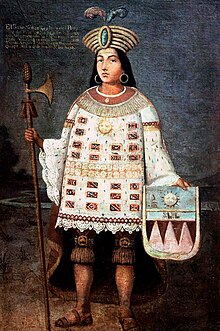

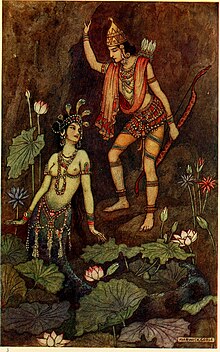



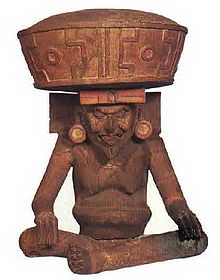
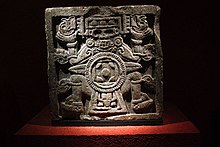

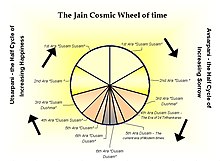
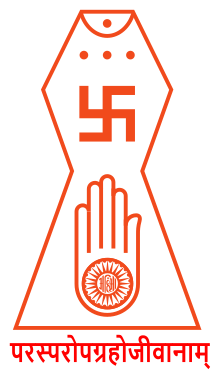
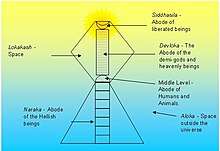
旭
[編集]トナチウハ クアウトレバニトル
シピリ ンテウトル
トネ, トラエシュチア モトナメヨチア
トントクイ テトラチ テツカアチ テyトニ テイシュリレウハ
テイシュトリロ テイシュカプチョ テイシュトレカレウハ
死
[編集]アハ トラミズ ノショチウハ アハ トラミズ ノクイク
イン ノコネワ
セセリウイ ヤ モヤワ
イン クイカトル
[編集]ニセモヤワス ショチトル
ニセモヤワス クイカトル
マノチ クイスクリカン
マノチ クイアホクイカン
シワラカン キセリカン ショチトル
シセリカン パクイリストリ
アモ シモクエソカン
アモ シピナワカン
ノチ シワラカン
マノチ ヨルパクイカン
マノチ クイセリカン ショチトル
花木
[編集]アンノチパ トラルチクパク。 ザン アチカ ヤ ニカン 。
オワヤ オワヤ 。
テル カ チャルチウイトル ノ シャマニ ノ テオクイトラトル イン トラパニ ノ クエチャリ ポズテクイ 。
ヤウイ オワヤ。
アノチパ トラルチクパク ザン アチカ ヤ ニカン 。
オワヤ オワヤ。
おきにいりラップリリック
[編集]Rakim's Follow the Leader
I'm everlasting, I can go on for days and days
With rhyme displays that engrave deep as x-rays
I can take a phrase that's rarely heard
Flip it - now it's a daily word
God by nature, mind raised in Asia
Since you was tricked, I have to raise ya
From the cradle to the grave
But remember - you're not a slave
Cause we was put here to be much more than that
But we couldn't see because our mind was trapped
A furified freestyle - lyrics of fury
My third eye make me shine like jewelry
Rakim's Holy Are You
Walk on water? Nah, neither did Jesus
It's a parable to make followers and readers believers
Skin is bronze like the Messiah
Rakim Allah's about to reveal the biggest secret in > time: Men are God
Rakim's Addictive
The only concern is you my only girl
And when we speakin' in tongues
Breathing hard when I'm squeezin' your lungs
Tupac's Blasphemy
Have you ever seen a crackhead, that's eternal fire
Why you got these kids minds, thinking that they evil
While the preacher being richer you say honor God's people
Is heaven just another door? I leave this here
I leave this and hope God see my heart is pure
Is heaven just another door?
God comin', she's just takin' her time
They say Moses split the dead sea, I split the blunt and rolled the fat one, I'm deadly
Tupac's I Get Around
Hate to sound sleazy, but tease me
I don't want it if it's that easy
Don't be picky, just be happy with this quickie
When will ya learn you can't tie me down Baby doll, check it out: I get around
Finger tips on the hips as I dip
Gotta get a tight grip, don't slip; loose lips sink ships
It's a trip, I love the way she licks her lips, see me jockin
Put a little twist in her hips ‘cause I'm watchin
Now we're all alone, why the lights on?
Turn them off! Time to set it off, get you wet and soft
Somethin is on your mind, let it off
おきにいりマハーバーラタのせつ
[編集]One day,
as Arjuna was bathing in the river,
offering oblations to his ancestors,
he was seized, and pulled beneath the water,
by Ulupi, beautiful snake princess.
She whisked him off to the kingdom underground,
where snakes live amid sacrificial fires.
She wound herself around him tenderly.
As soon as I caught sight of you, the love god
churned me with desire. Ah, make me happy
handsome hero of the Bharatas!
Arjuna hesitated. Enchanting one,
I am committed to a celibate life
during my exile; I cannot break my vow.
Believe me-I would truly like to please you...
But how can I, without transgressing dharma?
Surely your vow, said sensuous Ulupi,
relates to Draupadi, not other women.
Remember too-the highest form of duty
is to preserve life. And, rest assured,
I shall die unless you slake my thirst.
His course was clear. Arjuna passed the night
in pleasure with the sinuous snake princess,
and returned at sunrise to his lodging.
A Brahmin seer of great repute was bathing in the water
of Lake Mahahrada when his glance fell upon the
apsaras Urvashi, and his seed spurted from him. It fell into
the water and was swallowed by a doe which was drinking
there. In due time, the doe gave birth to a boy who bore a
horn on his head. He became ascetic Rishyashringa. He
grew up in the forest and, except for his father, he never set
eyes on another human being. His reputation for austerity
and virtue spread far and wide.
In the nearby kingdom of Anga, no rain had fallen for
years. Indra, god of rain, had withheld his favor on account
of the bad behavior of the ruler, Lomapada, toward brah-
mins. Even Lomapada's household priest had left him. He
was advised that if he could persuade Rishyashringa, the
great ascetic, to come to his kingdom, rain would surely
follow.
Lomapada made his peace with the brahmins, and per-
formed rituals of expiation for his past bad deeds. Then,
with his ministers, he devised a plan: specially chosen cour-
tesans would be sent to the forest to entice the seer to come
to Anga. The courtesans were reluctant to oblige, however,
fearing the ascetics curse. But an older woman among them
took charge of the enterprise. She prepared a lovely hermit-
age that floated on the water near the ascetic's home, and
installed herself there with the most beautiful and accom-
plished of the courtesans, her daughter, who was known for her
her cleverness.
The girl presented herself before Rishyashringa as a stu-
dent of the Vedas, and inquired after his well-being. Sir, she
said, I hope your austerities are proceeding well, and that
nothing is interfering with the performance of your vows.
The young man was astonished by her appearance. Sir,
he said, your radiant looks, almost like a god, must mean
that you yourself are prospering. Tell me what discipline you
follow. Where is your hermitage? Let me honor you and give
you water to wash your feet.
I should rather honor you, said the girl. In my her-
mitage we pay respect by enfolding the honored person in
our arms. This she did, and with great gaiety, offered the
young man delicious food and drink, and played ball with
him, laughing and pressing herself against his body. Then,
saying that she had a religious duty to attend to, she walked
away. Rishyashringa was left in a state of intoxicated bewil-
derment. When his father came home he told him what had
happened, describing the divine-looking stranger.
Father, he looked like a god, with beautiful braided hair,
and a curving body. His voice was melodious as a cuckoo's,
and in front of him hung two soft globes. When he touched
me, I was filled with rapture, and now that he is gone I can
think of nothing else. I want to go to him.
Son, that must have been a rakshasa, said the father,
keen to protect his son's innocence. They take on beguiling
shapes to tempt us away from the right path. They are to be
avoided at all costs. The father went in search of the 'rak-
shasa', and was away for three days. But meanwhile, the lovely
courtesan returned, and enticed Rishyashringa to accom-
pany her. He did so willingly, and was taken to Anga, where
he was housed in the women's quarters. The ruler gave his
daughter, Shanta, to him as a wife, and bestowed wealth
and lands on him. After this, the rains were plentiful.
Rishyashringa's father was furious at first, but was then
reconciled, on condition that his son would return to the
forest once Shanta had given birth to a son. This he did, and
he and Shanta lived together in the forest, in great happiness.
タミルごうた
[編集]- うた 255:
- குன்றக் குறவன் காதல் மடமகள்
- வரையர மகளிர்ப் புரையுஞ் சாயலள்
- ஐயள் அரும்பிய முலையள்
- செய்ய வாயினள் மார்பினள் சுணங்கே.
- Kuṉṟak kuṟavaṉ kātal maṭamakaḷ
- Varaiyara makaḷirp puraiyuñ cāyalaḷ
- Aiyaḷ arumpiya mulaiyaḷ
- Ceyya vāyiṉaḷ mārpiṉaḷ cuṇaṅkē
- The loving young daughter
- of the hill man
- is as beautiful
- as a mountain goddess.
- She is gorgeous
- with her sprouting breasts,
- her reddened lips,
- and her mottled chest.[1]
- うた 132:
- குறிஞ்சி - தலைவன் கூற்று
- கவவுக் கடுங்குரையள் காமர் வனப்பினள்
- குவவுமென் முலையள் கொடிக்கூந் தலளே
- யாங்குமறந் தமைகோ யானே ஞாங்கர்க்
- கடுஞ்சுரை நல்லா னடுங்குதலைக் குழவி
- தாய்காண் விருப்பி னன்ன
- சாஅய்நோக் கினளே மாஅ யோளே.
- சிறைக்குடியாந்தையார். (குறுந்தொகை - 132)
- What he said to his friend:
- A girl of dark complexion is she
- Ever ready to embrace,
- desirable in beauty,
- with delicately bulging breasts
- and long flowing hair!
- How can I forget her and be at rest?
- In her look is such longing
- as in the look of a new-born tender calf
- that longs to see its mother whose udders are ready to flow!
- - シライックヂヤアンンダヤアル. (クルントガイ - 132)
ざっかクォウト
[編集]| 「 | The absolute absence of any conscience in the psychopath means there is no limit to the lengths to which they are willing to go to portray the righteous intent toward the only thing which actually works for destroying wickedness, that being the extermination of the wicked who have so well justly earned death by way of their actions, having killed untold numbers of persons undeserving of death, who have caused and relished their causation of suffering which the average person could not possibly fathom, and have caused such suffering to be experienced not for a moment, nor for a length of time, but perpetually. They convince the mindless dupes that their goals are an end unto themselves, that they are not self-serving and intent on control, whereas they have no compassion. They are demons in human form who care only about their own benefit, while pretending to be the most compassionate of all, claiming their insurmountable atrocities serve to make the world a better place for all. In fictionalized form, they dwell in or actually high above a temple dedicated to themselves and which in its form replicates the temples of their ancient pagan ideological ancestors who also sought to defy nature and God, and the very well-known verse from the book of Isaiah evinces that such defiance was not a matter of an isolated incident, but a sort of wicked tradition among the pagans of Babylon, who are said in the book of Genesis to have attempted to build a "gateway to God" or "the gods" which was, in all likelihood, a ziggurat like the Jedi Temple, the latter having a central spire rising up from the ziggurat structure which reaches up into the heavens to the chamber where the Jedi Council meet.
Yes, their soulless scum asses who blatantly revere the serpent for its indifference to the most horrific of inhumanities, sometimes even seeming to enjoy inflicting horrible suffering, convey and propagate their positive valuation and high priority of such psychopathy by way of encouraging their initiates to bring their passions under their control, meaning to become like the serpent. This can be confirmed as a teaching not only of the fictional Jedi, but of occult orders and religious groups which emphasize the development by the individual of his own "power from within", of control over himself and others, man and "spirit" alike, rather than submission to, and worship of an eternally superior Being. |
」 |
| 「 | I am strongly opposed to it. In its role as the official state religion of Russia, Christianity suffocated the religions of other nations, transforming them into involuntary spiritual slaves. [...] t is worse than a prison. Sooner or later people get out of prison and become masters of their own fate again. A prisoner is someone who has lost his or her freedom temporarily. But a slave is not a prisoner — he doesn't even desire freedom. Over the course of many centuries Christianity has bred our peoples into slaves, depriving them of freedom of thought and reducing them to the level of submissive cattle. In the Erzya religion the relationship between God and human beings is different from that in Christianity. It is deeper, more humane, more beautiful. [...] In our religion a person's worth is not killed or suppressed, but extolled. You never hear things like "you are God's slave", or "turn the other cheek", or "if someone takes your coat give them your shirt as well", or "bless your enemy". | 」 |
-ききょうついてケマイキナ
| 「 | And a man sat alone
drenched in deep sadness. And all the animals drew near to him and said: We do not like to see you so sad… Ask us for whatever you wish and you shall have it. The man said: I want to have good sight. The vulture replied: You shall have mine. The man said: I want to be strong. The jaguar replied: You shall be strong like me. The man said: I long to learn the secrets of the earth. The serpent replied: I will show them to you. And so it went with all of the animals. And when the man had all the gifts that they could give…..he left. Then the owl said to the other animals: Now the man knows much and is able to do many things….Suddenly I am scared. The deer said: The man has all that he needs now his sadness will stop.. But the owl replied : No….I saw a hole in the man…deep like a hunger he will never fill. It is what makes him sad and what makes him want. He will go on taking and taking…. Until one day the world will say: I am no more and I have nothing left to give. |
」 |
| 「 | There is no such thing as immaterial matter. All spirit is matter, but it is invisible to the human eye. | 」 |
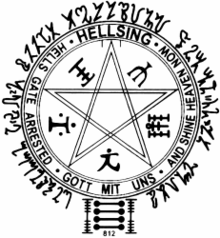

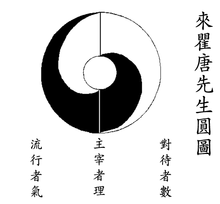


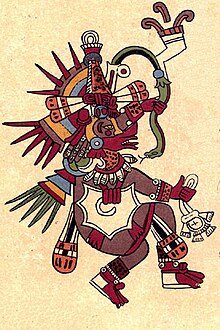

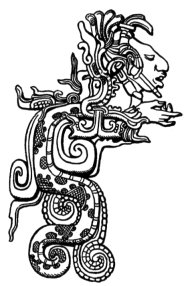
- ^ Selby, Martha Ann. Tamil Love Poetry: The Five Hundred Short Poems of the Aiṅkuṟunūṟu, an Early Third-Century Anthology. Columbia University Press, 2011. ISBN 9780231150651. pp105-106
